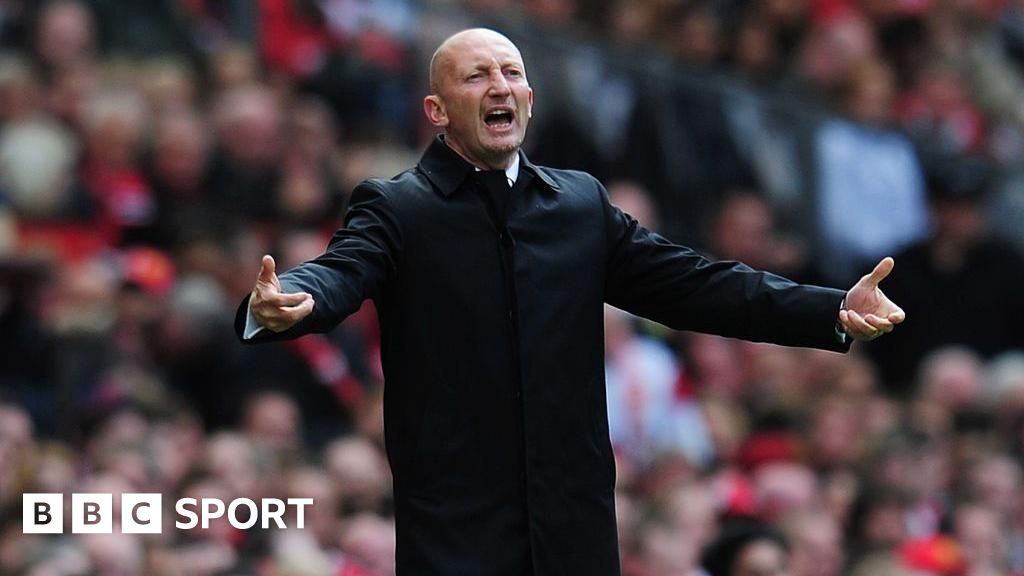Holloway has sometimes struggled with the lack of responsibility and sense of purpose when out of work. He loses an important part of his identity. More than just a job, management can be a compulsion. He thrives on having a squad of players who take their lead from him.
“You need to make every decision – what days are they in? What time are they training? Who’s involved and who isn’t? You’ve got to deal with all those emotions. The minute you lose your job, you haven’t got one decision to make. You’ve got nothing to do. It’s the total opposite,” he says.
Despite his frustration at this spell out of football, Holloway has lost none of his boundless enthusiasm. Living with his wife Kim, a mixture of family, painting, punditry and after-dinner speaking keeps him busy.
“I’ve had such a wonderful life that I’m not complaining, no matter what,” he says.
“I’ve got eight grandchildren I can see all the time. I’m trying to learn to be an artist and do portraits. I just want to be involved in the world.”
These days, he gets his football fix in different ways.
“You revise what you’ve done before and look at what’s happening today,” he adds. “You watch games and you analyse them. You’re constantly learning. I’ll take my grandson Ethan, who’s 10, to a training session. I might say something to one or two of the young players there and try to encourage them.”
Still, he knows that nothing quite matches the buzz of management.
“It’s about developing the group and a mentality. The beautiful thing about it is that you can create your own environment. I think that’s what I miss most. When it goes well, no one’s afraid to fail. That’s when the magic happens,” says Holloway.
“I’m forever hopeful. I’m a bit like Tom Hanks in Cast Away – you never know what the tide’s going to bring.”
In contrast to Holloway, Wade Elliott has had just one permanent managerial role so far. He retired from playing in 2015 and went straight into coaching, eventually becoming assistant to his former team-mate Michael Duff at Cheltenham Town.
“I’ve always been a bit of a football geek. I spend a lot of time thinking about the game. You can have a lot of influence as a coach but, ultimately, the manager is the one who puts his fingerprints on the team,” says Elliott.
“For a lot of people, managing is an itch that you have to scratch. You have to put yourself on the frontline and experience it.”
When Duff left to take over at Barnsley, Elliott was encouraged to apply for the vacant manager’s job. He was appointed in July 2022 and spent 65 games in charge. After successfully keeping them in League One, he was sacked last September following a poor start to the season.
“If you’re in charge of a team that doesn’t score for eight games, you can’t really quibble about the club wanting to try something else,” he reasons.
“I’m probably judged on those eight games and not the overall job, but I’m obviously privy to all the work that went on – the circumstances and the challenges.
“Success for Cheltenham in League One is hanging on, but you won’t get a lot of credit for that, and you won’t be able to use it as a stepping stone.
“I always wanted to try management. My thinking going into it was, ‘even if it ends how it’s likely to end, I’m going to be better for the experience’.”

